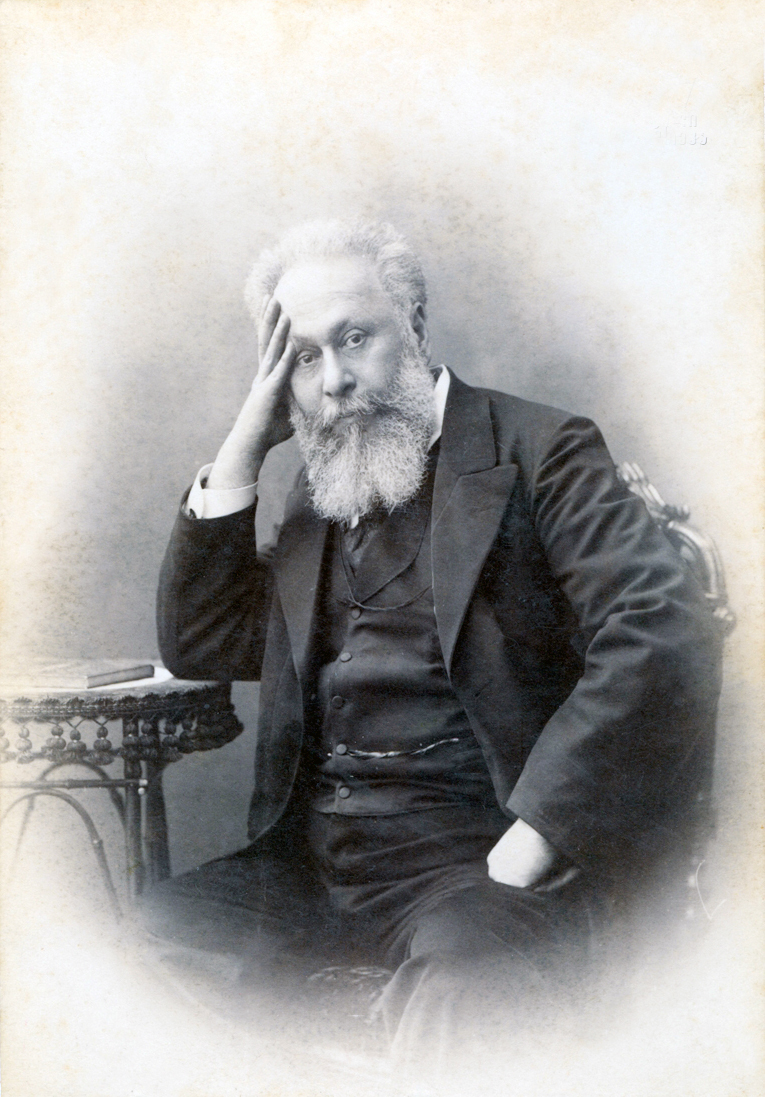| Suliko Gamzrdeli Salamuri Spring Dawn Who can count the sand in oceans? Song Of Natela |
Prince Akaki Tsereteli (1840-1915) - a prominent Georgian poet and national liberation movement figure.Was born in the village of Skvitori on June 9, 1840 in the prominent Georgian aristocratic family. His father was Prince Rostom Tsereteli a wealthy noble man of Georgia’s Imereti region. His mother Ekaterine Abashidze was the descendant of the Georgian royal family (granddaughter of king Solomon I of Imereti ). Following the old tradition Akaki Tsereteli spent his childhood years in the village of Savane in a peasant’s family and was brought up by a peasant nanny, all of which made him feel through the peasants’ life in Georgia. In the year of 1852 he entered the gymnasium of Kutaisi (Georgia);
In 1859-1863 he graduated from the University of Peterburg’s Department of Oriental Languages. That same year he married Natalia Bazilevskaia and lived in Moscow for a while, after which he returned to his mother land. Prince Tsereteli was a close friend of Prince Ilia Chavchavadze, Georgian progressive intellectual youth leader. The generation of 1860s led by Chavchavdze and Tsereteli protested against the Tsarist regime and campaigned for cultural revival and self-determination of the Georgians.
In 1859-1863 he graduated from the University of Peterburg’s Department of Oriental Languages. That same year he married Natalia Bazilevskaia and lived in Moscow for a while, after which he returned to his mother land. Prince Tsereteli was a close friend of Prince Ilia Chavchavadze, Georgian progressive intellectual youth leader. The generation of 1860s led by Chavchavdze and Tsereteli protested against the Tsarist regime and campaigned for cultural revival and self-determination of the Georgians.
Akaki Tsereteli contributed greatly to the foundation of “the Society of Literacy Spreading among the Georgians”, the development of the Georgian Journalism, establishment of the permanent theatre troupe. He was the editor to the “Jester” satirical-humorous magazine. Tsereteli lead Georgia’s struggle for liberation and self-determination and was the champion of the spiritual revival of the Georgian nation.He began to write poetry in his early years. Being the author of hundred of remarkable patriotic, historical, lyrical and satiric poems, also humoristic stories and autobiographic novels. Among his major lyrics are Alexandra (1860), Simghera mkis dros, Glekhis aghsareba (1863), Tsitsinatela (1869), Mukhambazi, Aghmart-aghmart, Rom itsode chemi gulis dardebi (1876), Gazapkhuli (1881), Khanjals, Qebata qeba (1882), Amirani (1883), Chaghara (1886), Satrfos, Gantiadi (1892), Tqveni chirime (1905), Momakvdavis fiqrebi (1911). Many of his poems were turned into songs and Suliko (1895) still remains one of the most popular songs in Georgia.
Tsereteli’s epic poems include Bagrat didi (1875), Tornike Eristavi (1883), Tamar Tsbieri (1885), Kikolis Naambobi (1889), Patara Kakhi (1890), Natela (1897), and Gamzrdeli (1898). He proved to be an equally talented writer of prose, authoring Bashi-Achuki (1895-1896) and the insightful autobiographical Chemi tavgadasavali (1894-1908).he was acknowledged by the Georgians as the People’s Poet in his lifetime. The poet’s 50th year anniversary (1908) was to become a true national celebration for the Georgians. Akaki Tsereteli died on January 26, 1915 and was buried at the Pantheon of the Georgian Writers and Public Men on the Mount Mtatsminda in Tbilisi. Tsereteli’s public prominence was fully revealed in 1908 when his 50th jubilee and trip to Racha-Lechkhumi were turned into a national celebration attended by many Georgian writers and public figures and produced the first Georgian documentary film.





